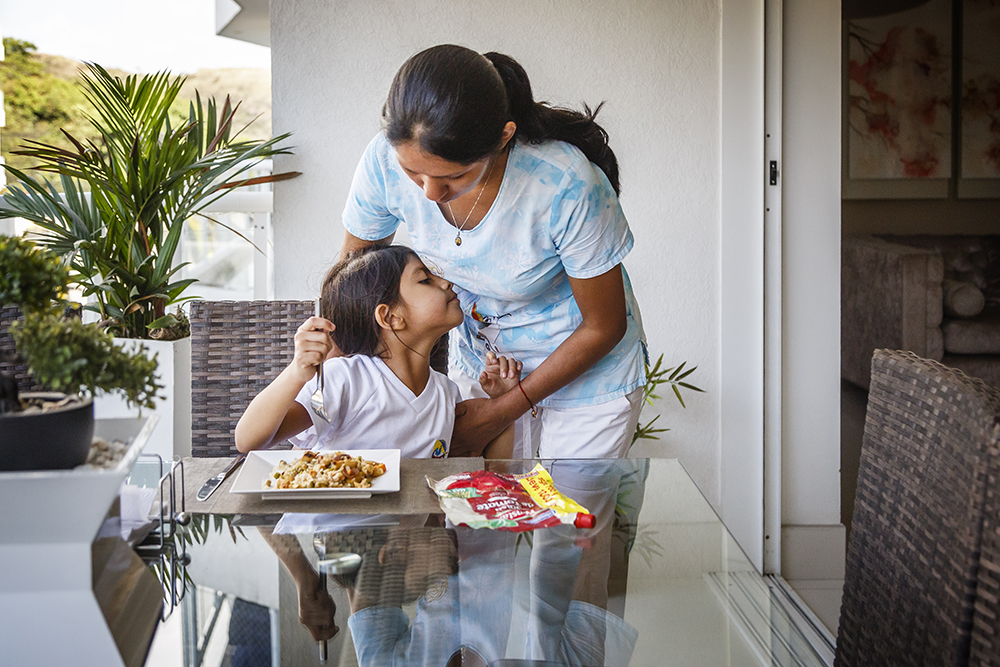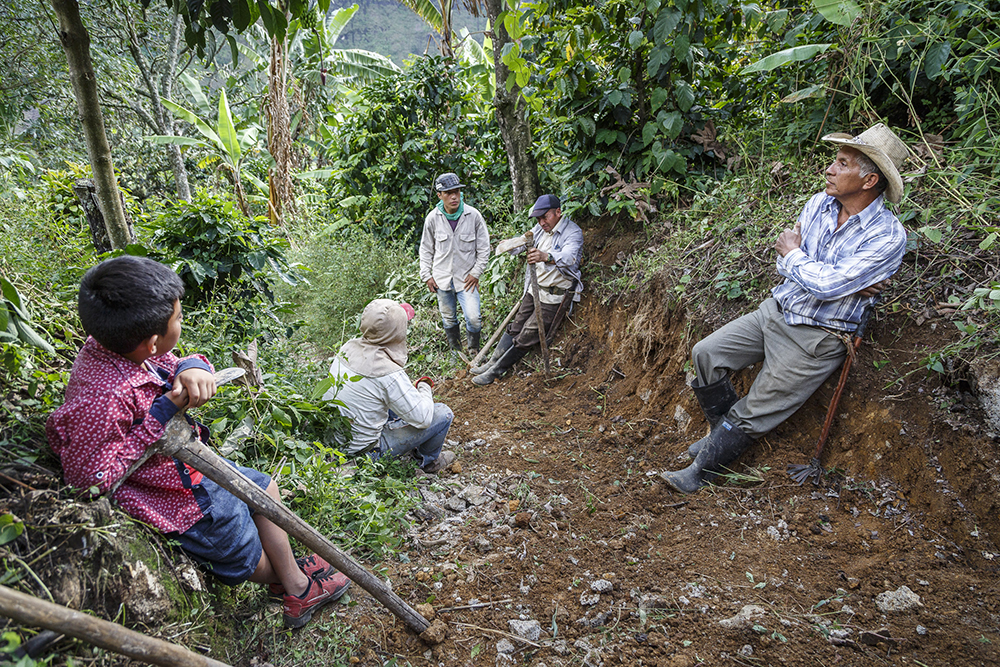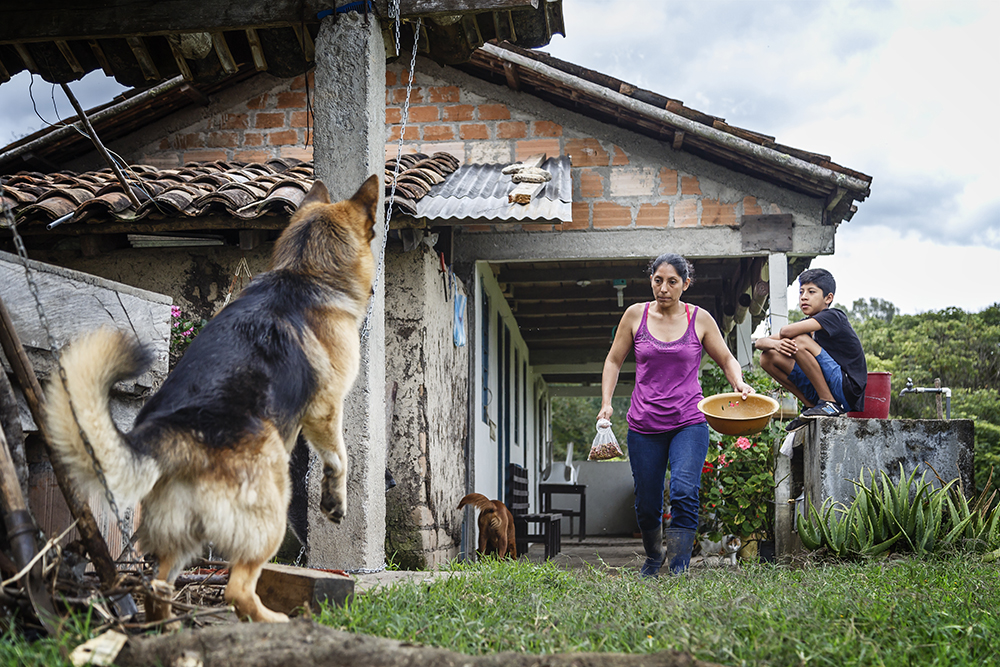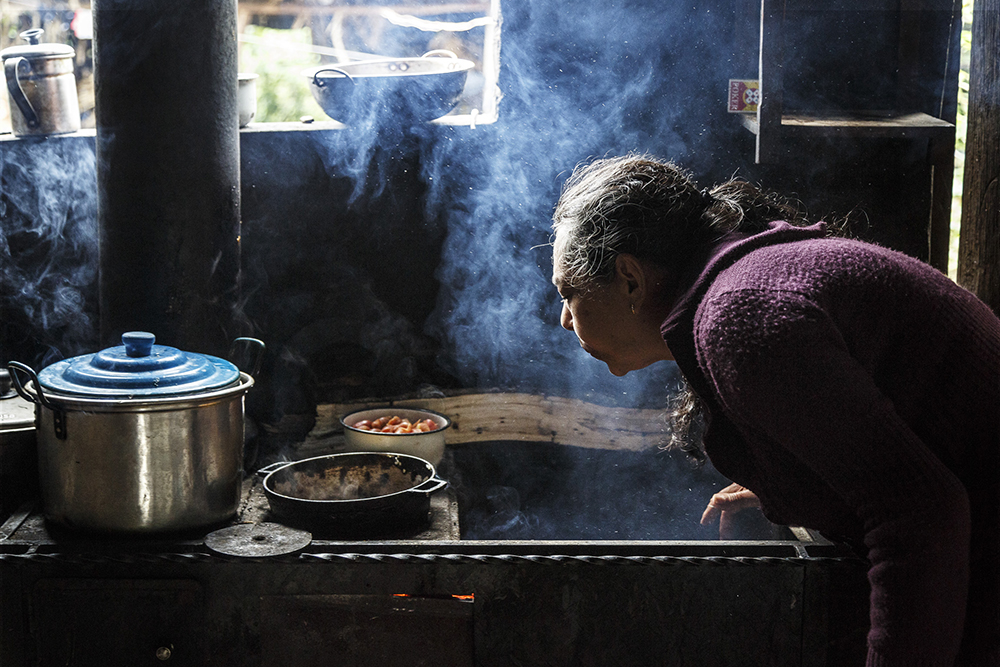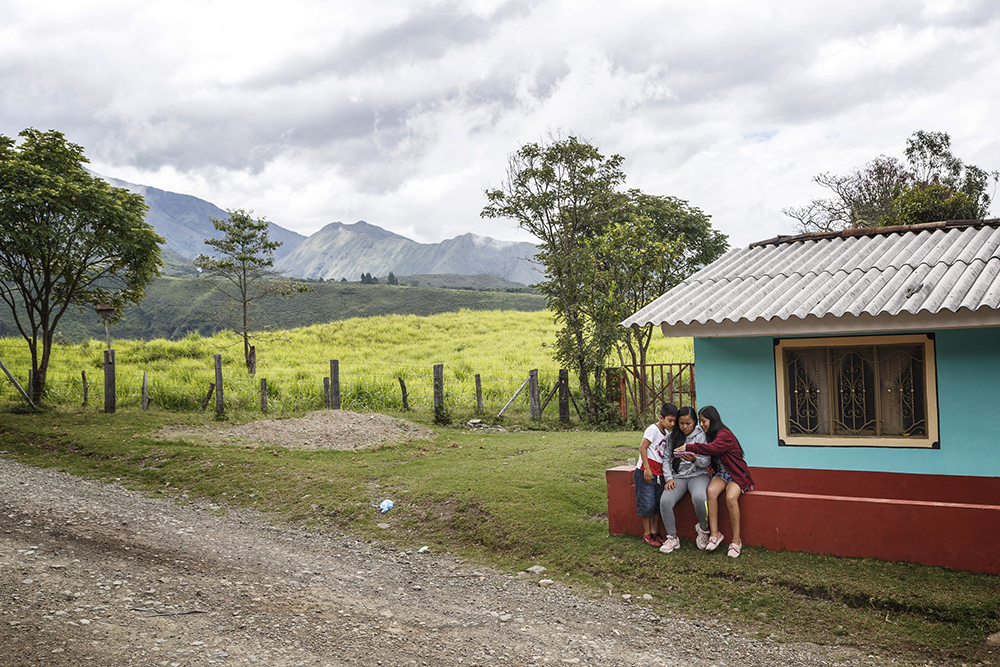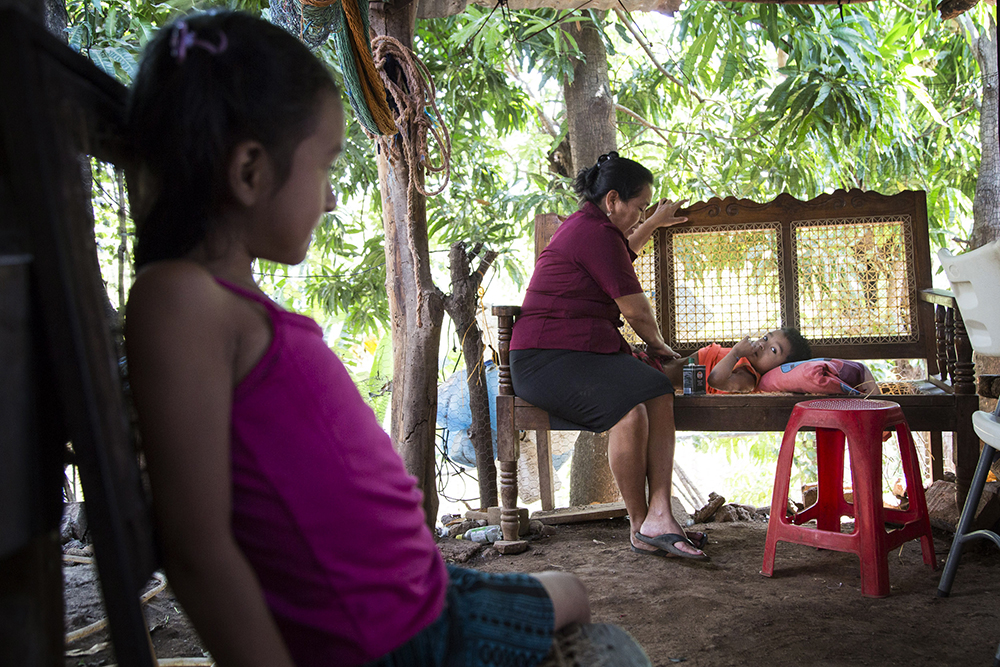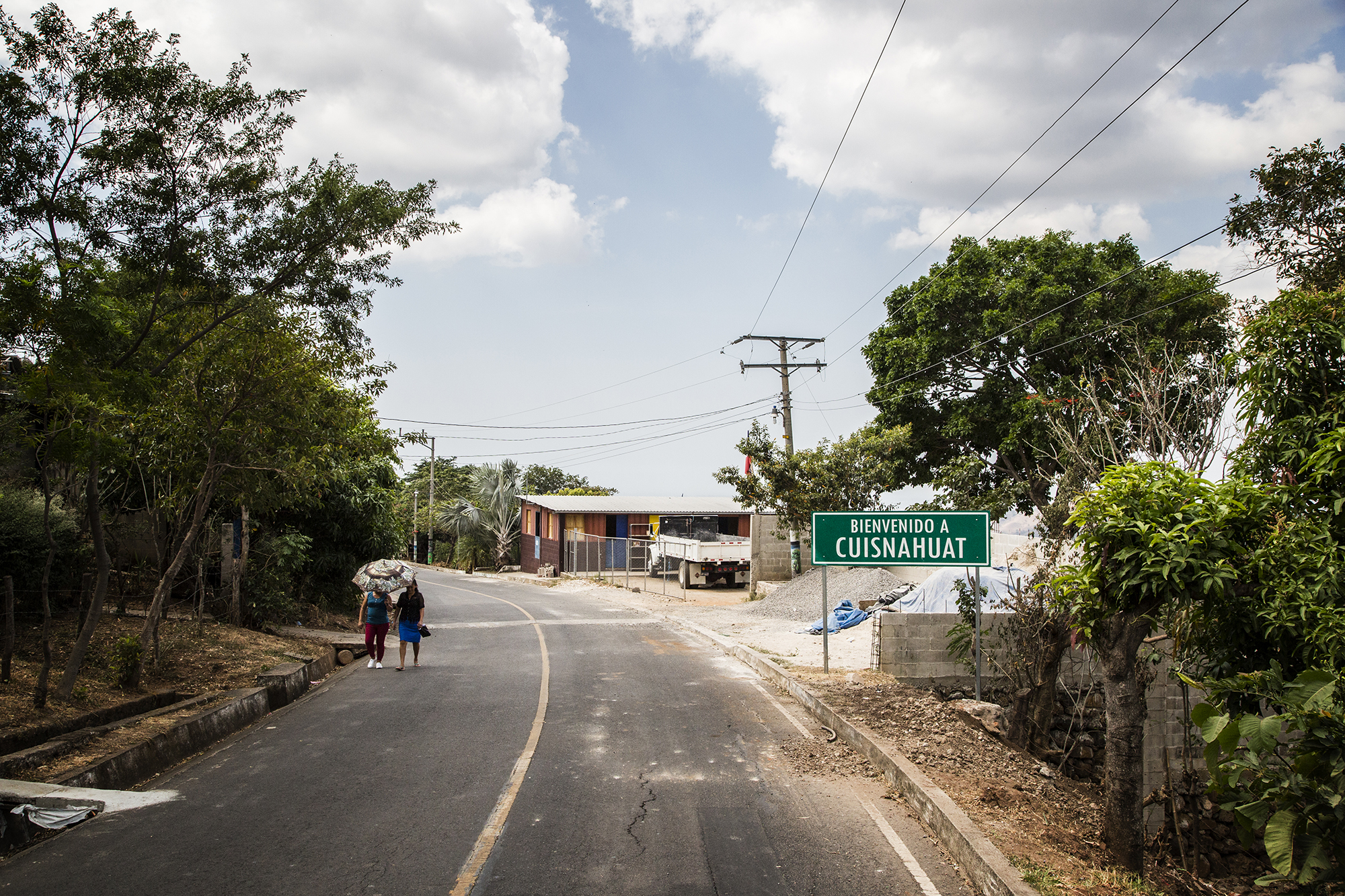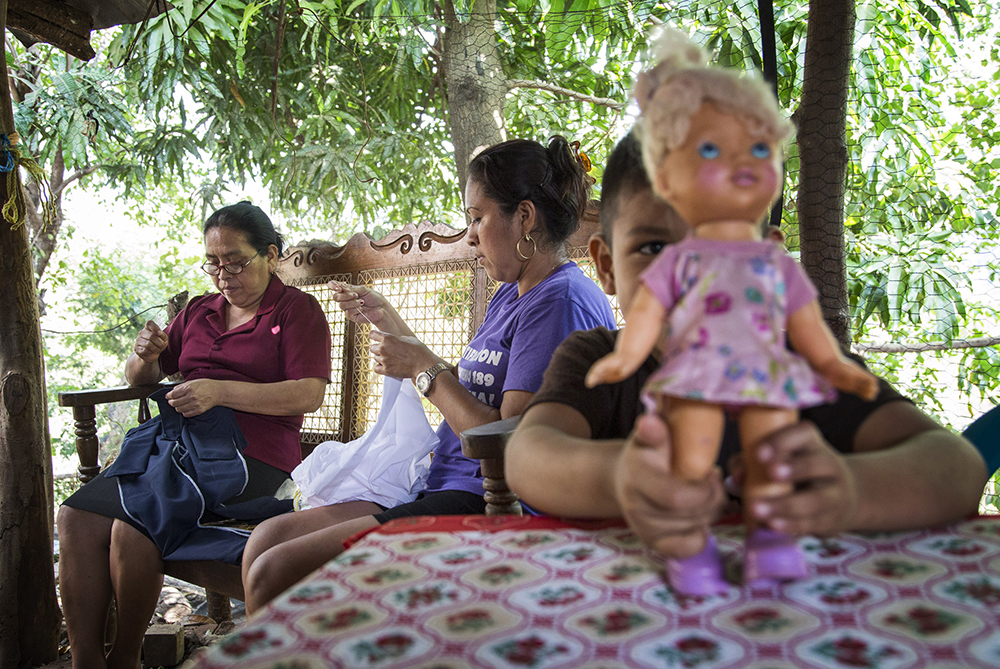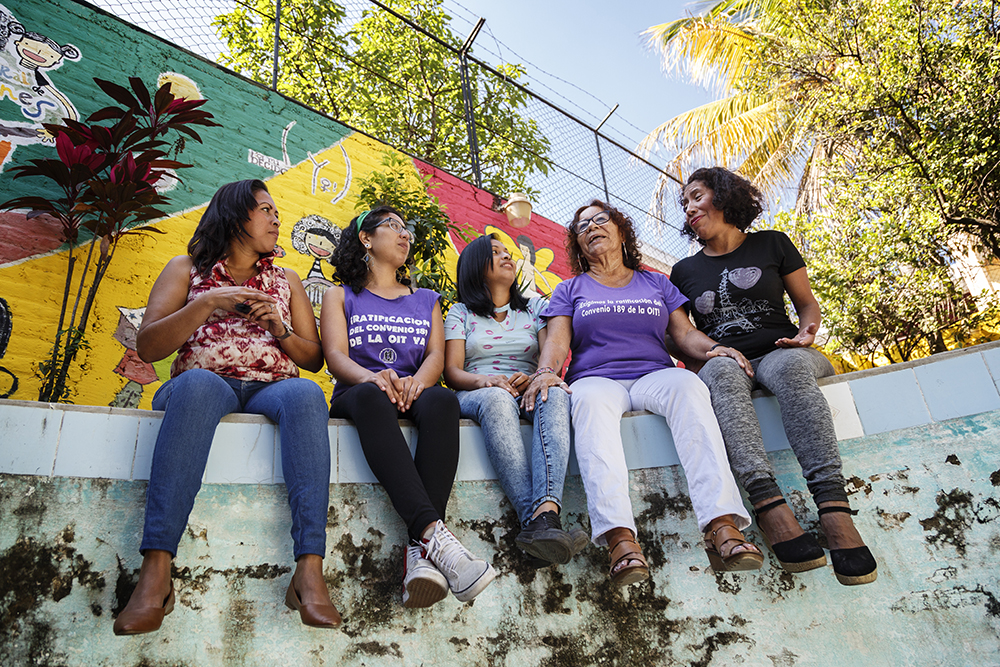Lucelly, for example, sends a part of her salary to La Sierra every month. There, her parents and her sister Nohemi Canchala take care of Julián David. "He more or less lives in both houses because they are right next to each other", explains Lucelly, who says that her sister "helps me with my son more than she should". "She feeds him, she practically plays the role of a mother, something I can't do, she goes to school meetings, to medical appointments...” she recognizes, overcome by emotion. According to Lucelly, her sister “is blessed, because she hasn't had to go out and fight, to wrestle with a different life the way we've had to. My parents have also come to rely on her because she's there”.
In La Sierra, Nohemi is clear that "it would be very hard to leave my father and mother practically alone" and says that Julián David "is like another son to me, he is not a nephew but a son", just like Mishell, who "until she also left for Cali, was at home, slept here, ate here, got up to no good here, I've always had to take care of them”. Nohemi has not had to "go out and fight" in the city, but she fights every day to keep things going in the countryside, taking care of her parents, and often her little brother, her husband, her children, her sister's children, animals, the house, the orchard, and so on. "My husband has never been a selfish person" she ends up saying while, getting emotional as she goes on, she goes through the list of care tasks she carries on her shoulders.
According to Marco Alirio, in the countryside, "a woman's work is the hardest". "She is the first to get up and the last to go to bed", says Cecilia.
To continue with Lucelly's story, we might turn briefly to the inner workings of the global and local transfers of care charted by the Colombian researcher Camila Esguerra. Esguerra explains that, "in the countries of the so-called first world, there is a care deficit that has been met, not by national welfare state provision, but by the migration of women from southern countries”. She adds that, “when they migrate from their countries, there is a deficit of care in what we might term these donor countries", due in part to the entry of women into the workforce, as is the case of Dr. Maria Isabel, "which is in turn met by other women, be they migrants, nationals, or women from within the family. They do this with even less job security than migrant women from the global South, or even as unpaid care work”.
In this story, Cecília, Consuelo and Nohemi are the women who, out of love, make up for the care deficit that Lucelly inevitably leaves behind while she, taking care of Salomé, makes up for the deficit left by Dr. Maria Isabel Pava. As Esguerra goes on to explain, “it is a highly complex flow of relations” in which stock must be taken of "the stories of these migrant women, all the blood, sweat and tears behind the tales of migration and care work”: the hidden and underappreciated work of balancing emotions, feelings, bonds and distances taken on by these women.
